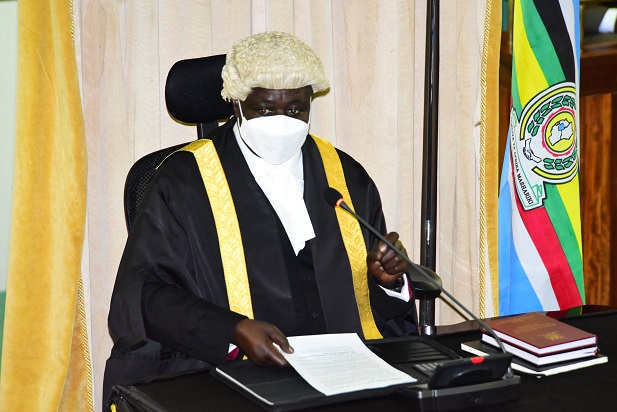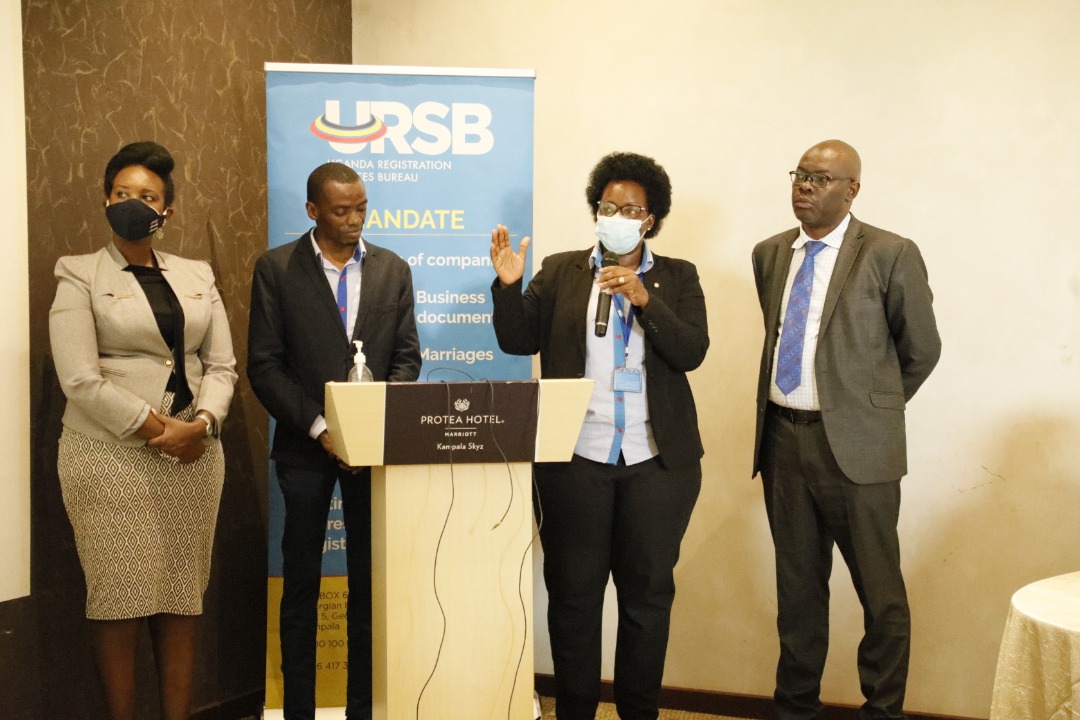The Speaker of Parliament, Jacob Oulanyah (pictured) has called on the government to invest in the marginalized people so as to reduce on the increasing number of vulnerable people country wide.
Oulanyah made the remarks while receiving the eighth annual Report on the State of the Equal Opportunities In Uganda for the year 2020/2021 at Parliament under the theme “Promoting Equal Opportunities and equitable access to social services for inclusive growth and sustainable development.”
The “vulnerable groups.” include orphans and other vulnerable children, persons with disabilities (PWDs), unemployed youth, displaced persons, marginalized women, older persons, and ethnic minorities among others.
“It is true the equilibrium towards social protection exists in Uganda, but the government requires to empower the vulnerable groups to make them self-sustaining and reduce the gap between the poor and the rich communities, in Uganda,” said Oulanyah.
“Promoting Empowerment of People in achieving poverty eradication, social integration and full employment integration and employment and decent work for all is the key to achieve social justice to all,” Oulanyah explained.
He added: “ When government invests in the vulnerability it will enable them acquire their rights to education, to own property, land, reduce poverty levels and government will spend ,less money annually, to invest in Social services, because they will have become self dependent.”
Oulanyah said empowerment is achieved when women and girls and other marginalized groups acquire the power to act freely, exercise their rights, and fulfill their potential as full and equal members of society.
Led by Safia Nalule Juuko – the Equal Opportunities Commission Chairperson, Joel Cox Ojuko Vice Chairperson and members Sr. Mary Wasagali , Denise Tusiime, Nalule emphasized that the level of vulnerable persons in Uganda that stand at 80 percent out of the total population of 48.m.
Nalule said main challenges faced by PWDs with regard to access to employment according to ranking were; lack of education and training lack of financial resources , poor attitudes of the employers and lack of confidence among persons with disabilities
The most critical problems faced by persons with disabilities interviewed were poor housing conditions , lack of Government support , marginalization and discrimination , limited access to proper healthcare food insecurity and lack of access to credit facilities.
Nalule added : “ In general terms, a good and sound educational system represents the first step to a good and satisfying job; people can have the chance to achieve a better life through a better education system, that gives them the knowledge to have, and a better job system, that gives them the means to find the place of work that better fits to their studies or abilities.”
Nalule advised that people living in poverty can be empowered both with the joint contribution of private and public institutions.
“It was also observed that health workers and patients reported that latrines at the health facilities were not accessible in terms of user ability by PWDS. Accessibility to the health facility latrines by PWDS was almost impossible, especially for those in wheelchairs. Most of the latrines had narrow paths and doors, making it difficult for PWDs in wheelchairs to manoeuvre their way through,” she said.
In her report Nalule said, District Local Governments need to urgently ensure that social protection programs explicitly promote gender equality for PWDs. “Failure to do so will hamper progress towards achieving the Sustainable Development Goals, hence missing the vital opportunity to improve the lives of women, especially those with disabilities,” she said.
She added that Government should put in place programmes to assist PWDs who have gained relevant skills by connecting them to employers or offering them financial aid to set up businesses to apply their skills.
Nalule pointed out deliberate efforts need to be undertaken by the Government through UBOS to create a data bank for PWDs in the working-age group of 18 years and above for each district country wide. This can be used for advocacy for the employment of PWDs. In addition, it will also help to close the information gap that
“The Government should set aside funds to assist PWDs to bring cases to court, and special committees should be set up to investigate any allegations of discrimination in employment on the grounds of disability,” she said.





